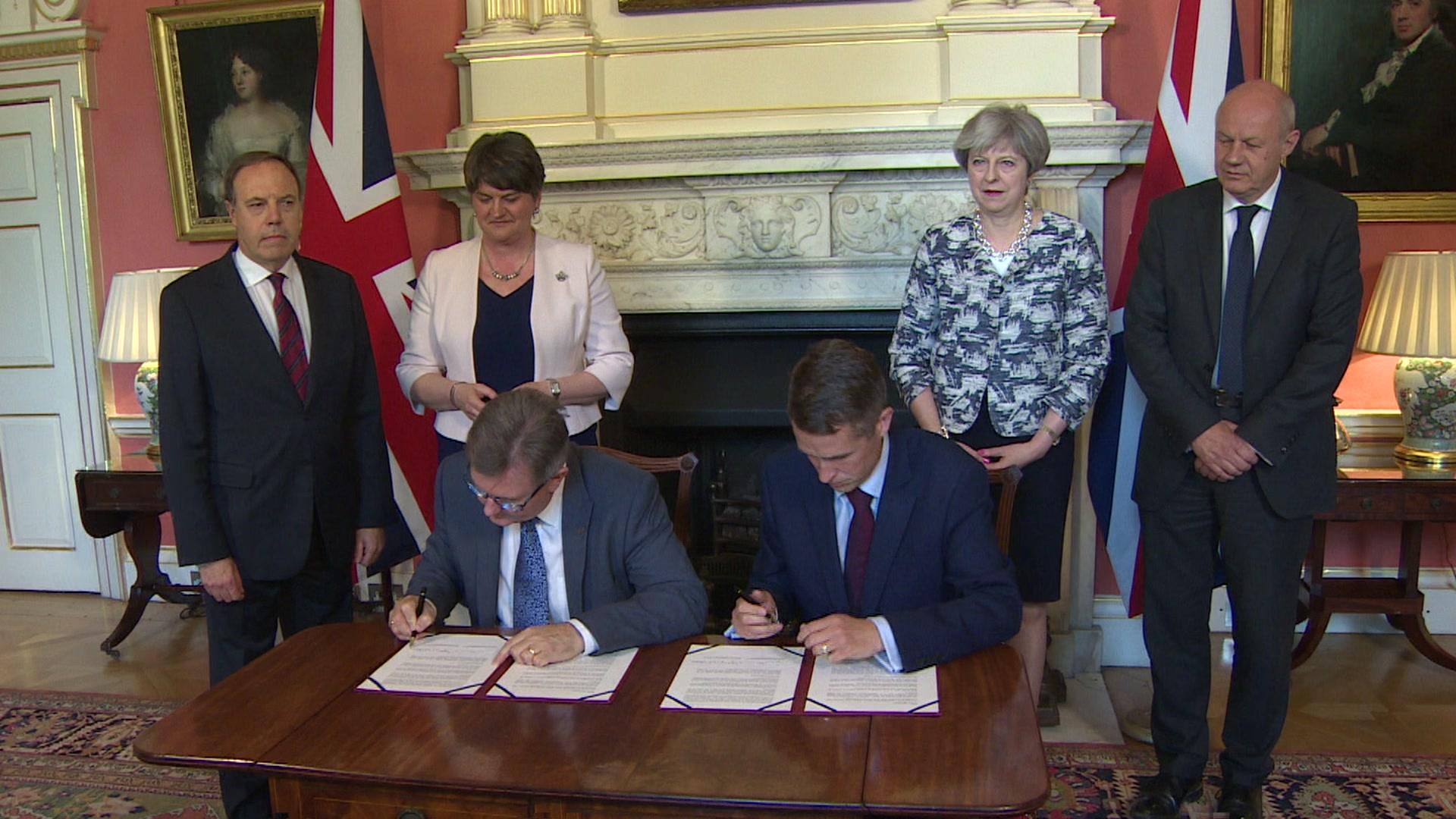DUP-Tory deal: Where is the money going to be spent?
- Published
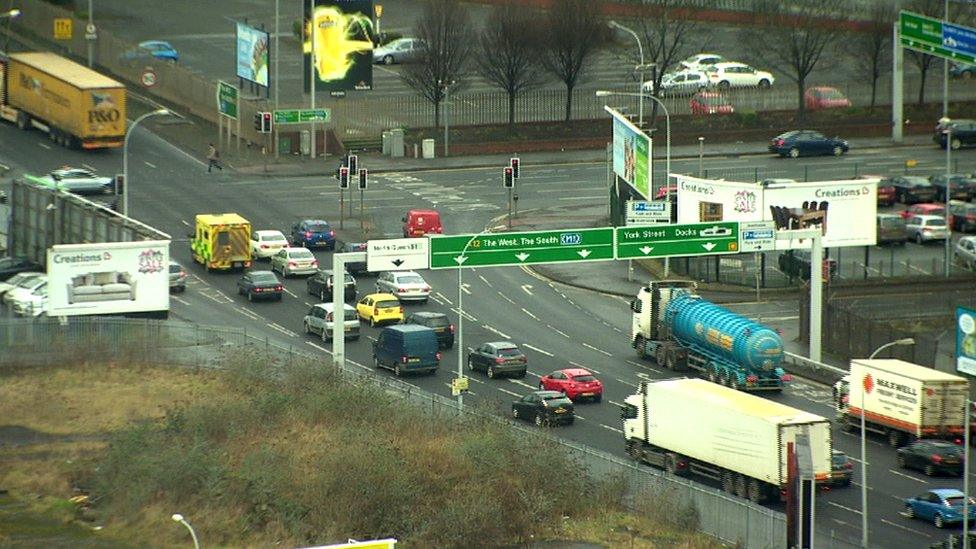
The Tory-DUP deal specifically mentions the York Street Interchange designed to ease traffic congestion in Belfast
Northern Ireland will receive an extra £1bn over the next two years as part of the deal that will see the Democratic Unionist Party's 10 MPs back Theresa May's minority government in Commons votes.
DUP leader Arlene Foster said the "wide-ranging" pact was "good for Northern Ireland and the UK" - so where will the money be spent?
The heart of the financial package is infrastructure spending - £400m of it over two years.
That is a significant sum given that Northern Ireland's annual infrastructure budget is about £1bn.
The deal specifically mentions the York Street Interchange, a project to ease congestion where three major roads meet in Belfast.
It is expected to cost about £150m, so there should be plenty left over for other major projects.
They could include a planned transport hub in the centre of Belfast and other major roads schemes like the completion of the A5 or A6.
Broadband
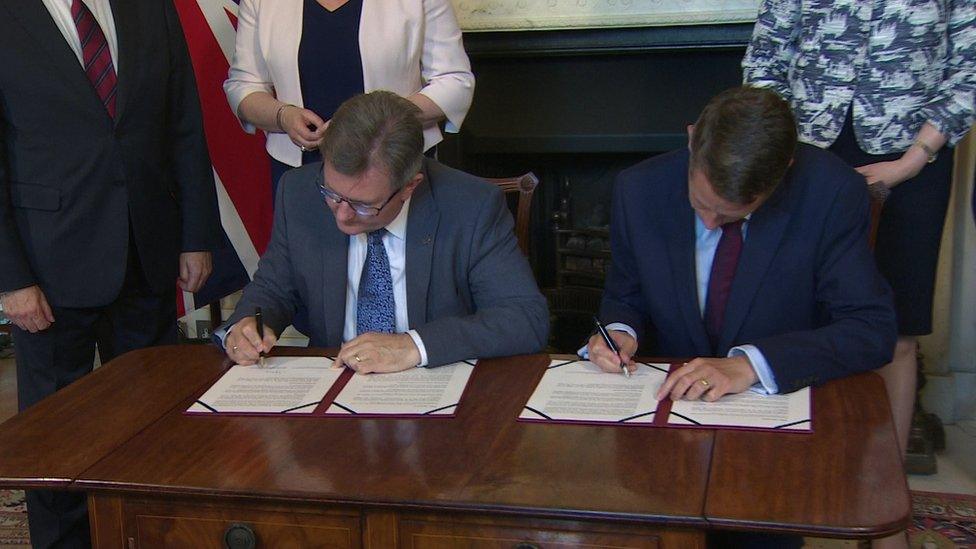
The DUP's Sir Jeffrey Donaldson and Gavin Williamson of the Conservative Party signed the confidence and supply deal in Downing Street
On top of the £400m, there is a further £150m for ultra-fast broadband.
This was a project which was already being scoped by the Department of the Economy before the collapse of Stormont.
It is ultimately about improving the connectivity of rural businesses.
Previous Stormont/Westminster deals have also included infrastructure but they typically involved allowing Stormont to borrow more.
This time it is cold, hard, no-strings-attached cash.
Health and education
The money for health and education is more modest - given that a figure of £1bn for health alone was being mentioned during the negotiations.

Where will the money go?
Health: A minimum of £250m, with £200m directed to health service transformation and £50m towards mental health provision. It will also receive £50m to "address immediate pressures"
Education: £50m to "address immediate pressures"
Infrastructure: £400m for projects including delivery the York Street Interchange, plus £150m to provide ultra-fast broadband across Northern Ireland. Northern Ireland's capital budget is currently about £1bn per year.
Deprivation: £100m over five years targeted to deprived communities
VAT and Air Passenger Duty tax: Agreed to further consultation
Corporation tax: Agreed to work towards devolving the tax to Stormont
City deals and Enterprise Zones: Agreed to "comprehensive and ambitious set" of city deals and "limited number" of Enterprise Zones

There is a minimum of £250m for health and and we can assume it will get about half the "immediate pressures" money, bringing it to a total of £300m.
That will help ease the problems with waiting lists and give the system some breathing space ahead of a major reform programme.
The "immediate pressures" money for education (about £50m) will go some way to easing a growing row with head teachers who have said they will not impose any more cuts.
There is also £100m to be spent on deprived communities over five years.
Social investment
It will be interesting to see what the delivery mechanism for that money will be.
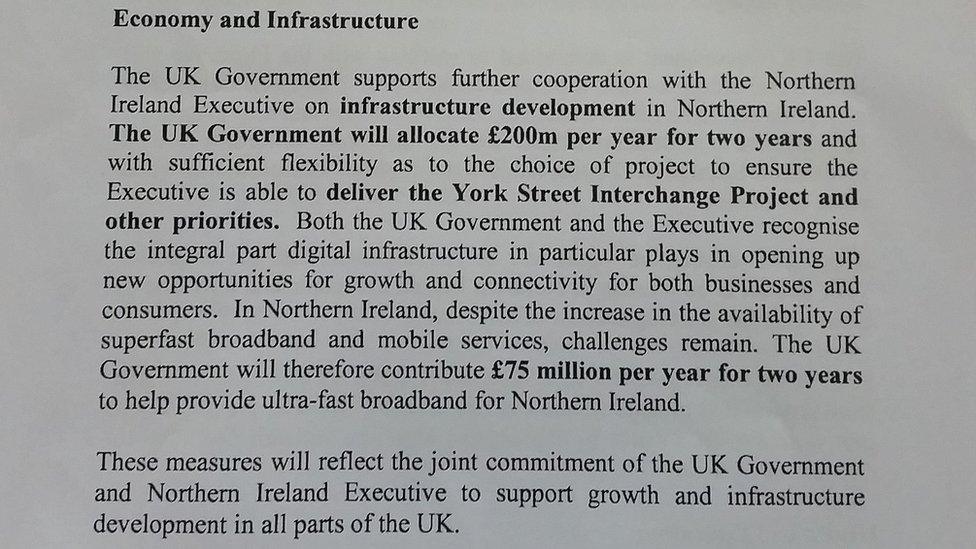
This section of the agreement outlines how money will be spent on infrastructure projects in Northern Ireland
Stormont's Social Investment Fund, which was also designed to help those communities, has been mired in controversy.
Another part of this deal is to give flexibility to a previously agreed £500m fund for investment in shared education and housing projects.
Stormont has struggled to spend this money, in its first year just £3m of a £50m allocation was spent.
So its is possible that the new flexibility will allow all that money to go into general infrastructure spending.
- Published26 June 2017
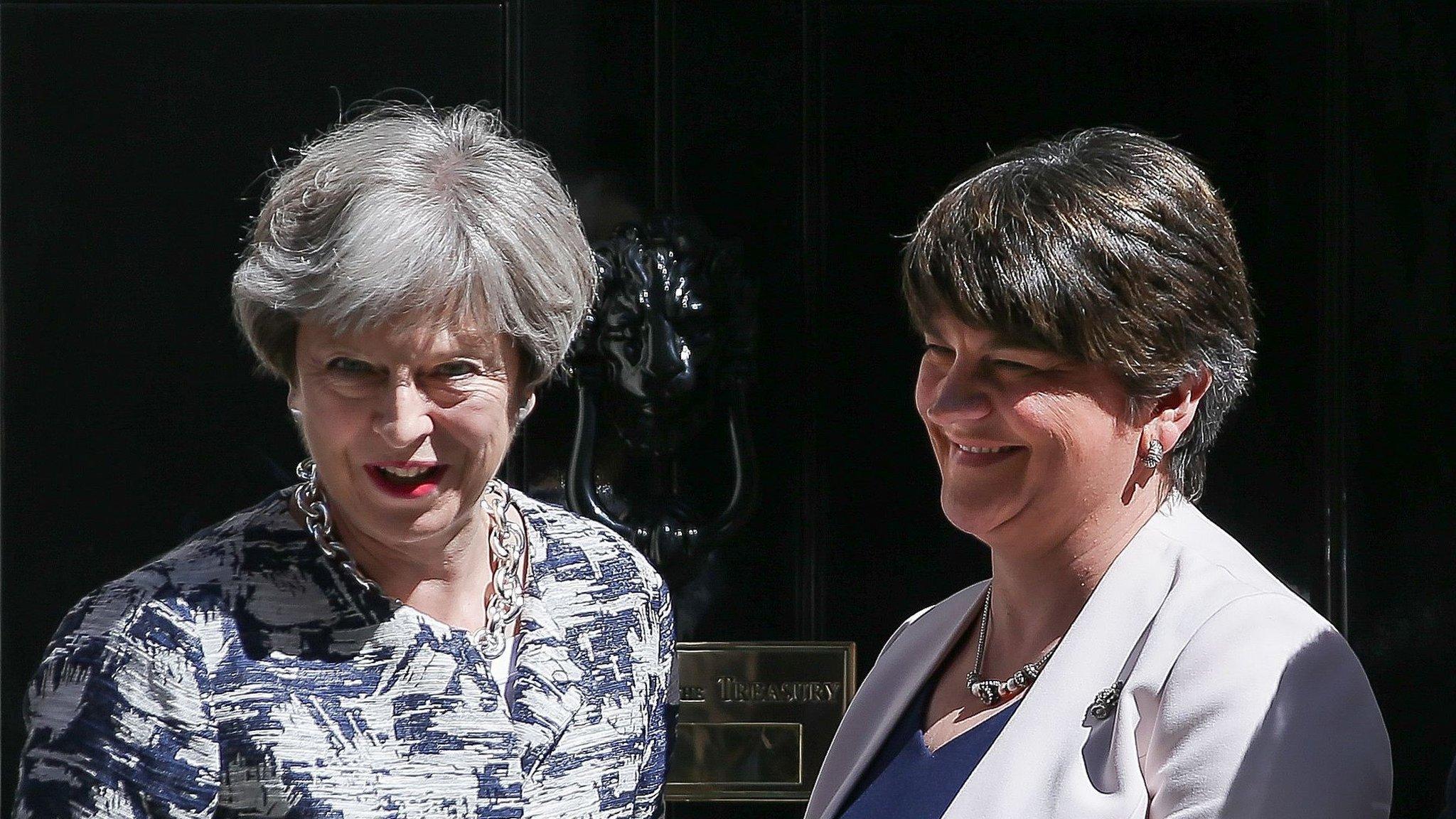
- Published26 June 2017
